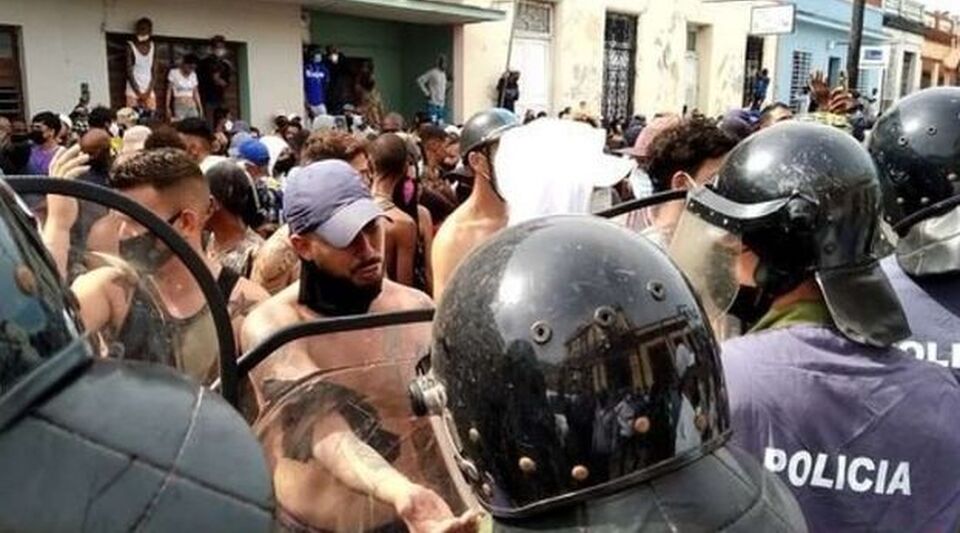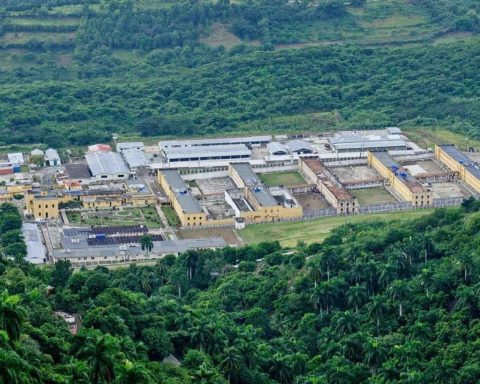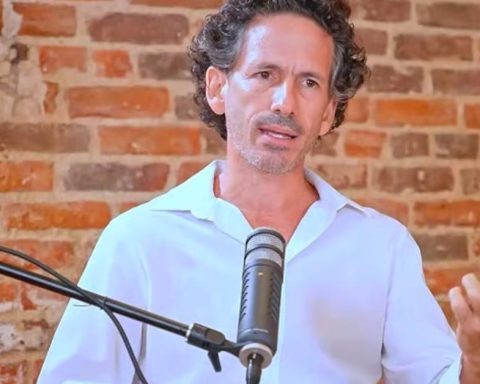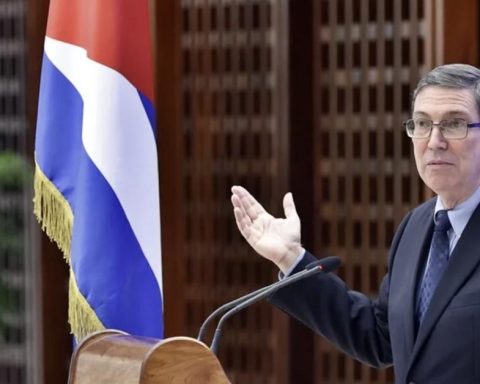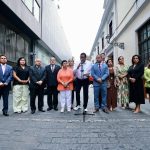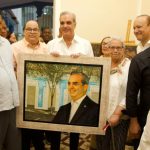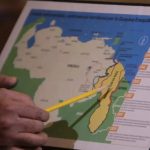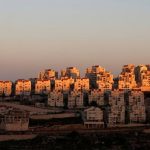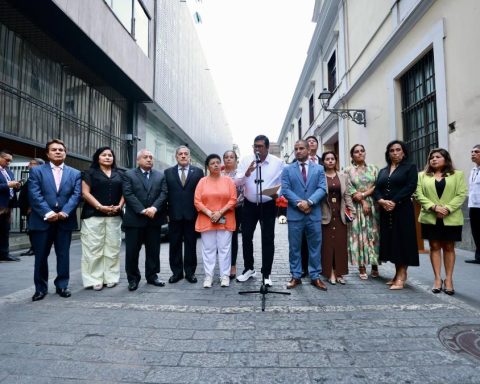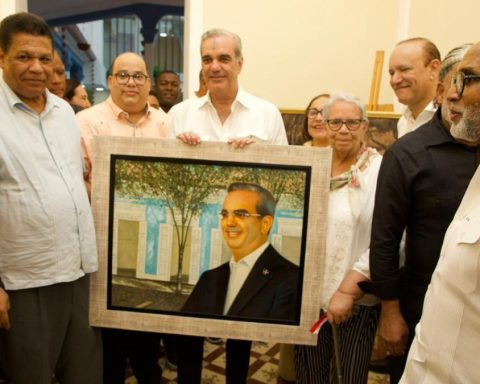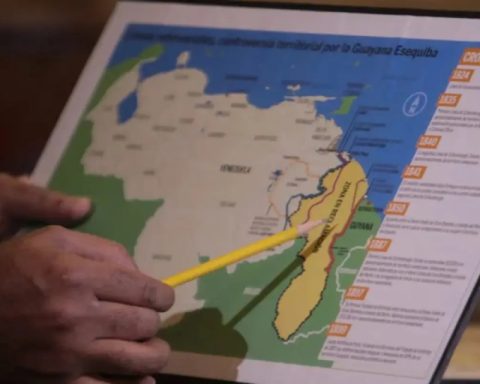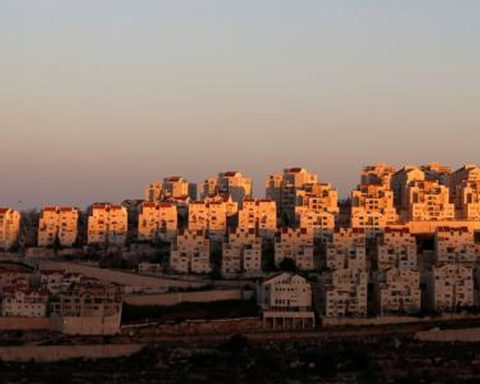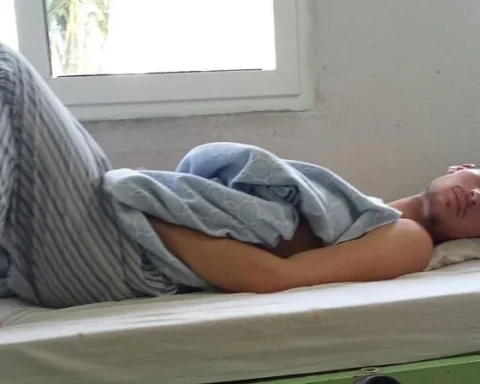The long prison sentences that the Cuban courts have been imposing on the July 11 protesters in Havana are taking their toll on their public image, even where they preserve it. That some people from the orbit of the ruling party, among which the troubadour of the Revolution, Silvio Rodríguez, stands out, have criticized publicizing the sentences has encouraged the regime to launch a campaign to justify them.
This Friday, the official newspaper of the Communist Party publishes a partwhich despite being titled Victimizing the victimizers is the enemy strategy is not included in the opinion section, in which the thesis is defended that the people tried for the events of July 11 “put the stability of the nation at risk.”
The text begins with three brief testimonies of people allegedly attacked in the maelstrom of the demonstrations, two of them police officers from Havana, who were involved in the altercations. Two others are public officials who, according to Granmaperformed tasks related to the pandemic, although they were not injured in that context but for “defending the material goods of the people.”
The text also mentions the alleged attack on the Cárdenas hospital of which there is no graphic testimony, only the statements of several people to Cuban television.
One of them, Reynaldo Rosado Roselló, responsible for logistics at the University of Informatics Sciences and who suffered a wound to the forehead, story in July that the events occurred when he went with several companions to the area of the disturbances, although reading Granma it is inferred that the demonstrators were the ones who appeared before institutions that housed patients.
The text also mentions the alleged attack on the Cárdenas hospital of which there is no graphic testimony, only the statements of several people on Cuban television.
According to the note Granma, on July 11 “violence, disorder and vandalism prevailed” and they accuse “the enemies of the Revolution” of trying to “sell the Cuban people’s claims as just.” Although the text admits that there was a lot of discontent among the population, it argues that the people who peacefully expressed their discomfort withdrew when they saw that “that unbridled mob had no sincere claim, but rather responded to external interests that were not at all beneficial to the people.” .
The ruling party defends itself by insisting that the people who have been severely penalized were violent and looters, not political prisoners
The ruling party defends itself by insisting that the people who have been severely penalized were violent and looters, not political prisoners. However, the highest sentences in the case of Havana recently or in Holguín last month, have not been for those who were accused of committing violent acts, but for sedition.
This is one of the most serious criminal types in the regulations of each country, because it involves standing up against a government in order to overthrow it. But the demonstrations against the authorities in democratic countries, in which slogans and insults are shouted against the leaders who are held responsible for the problems of the population, are part of freedom of expression and the right to demonstrate. In the event that they result in some act of vandalism or violence, the fine or penalty for that act is applied, but the protester is not accused of sedition, as has happened in Cuba in these processes.
However, the note Granma insists: “Impunity, when order and citizen tranquility are involved, is something that we will never allow, because in Cuba no one is above the law.”
The text emphasizes that the protesters moved instigated from abroad, which aggravates the situation
The text emphasizes that the protesters moved instigated from abroad, which aggravates the situation. “Those who provoked such acts, who incited chaos, were in many cases far from Cuba, calmly and coldly observing the result of their actions and, of course, counting the dollars received in exchange,” he says, before emphasizing that Cubans decide his destiny in his own way “with creativity, with depth of thought, with peace, with love and commitment”. “Anyone who still thinks he can be otherwise is naive,” she warns.
The article is an extension of podcast posted hours before by Cubadebate in which statements of alleged witnesses and harmed by the “violent acts that cannot be denied” are inserted. The prolific dissemination of audios of those who corroborate the government’s version is striking, compared to the absolute absence of those who deny it. In that program, they also show a notable annoyance with the Spanish newspaper The countrywhich published this Thursday a editorial against the 11J trials entitled Ruined Lives in Cuba.
The interviewees do not explain that what bothers them is the informative treatment but, curiously, that the newspaper deals with a topic that is outside its borders “with the number of problems that there are in Spain.” this very friday, Cubadebate highlights the million deaths from covid in the US or the marches in Serbia for the anniversary of the NATO bombing of the Federal Republic of Yugoslavia in the year 99.
The interviewees do not explain that what bothers them is the informative treatment but, curiously, that the newspaper deals with a topic that is outside its borders “with the number of problems that there are in Spain”
The program also dedicates several minutes to accusing the United States of hypocrisy for asking Cubans on their social networks not to risk traveling illegally to the country while not complying with immigration agreements, leaving those who intend to leave the country without legal channels. Of course, for economic reasons, “which they try to say is political exile,” they say.
The message goes on the nth line release of the Ministry of Foreign Affairs this Thursday, which also highlights the displacement of Cubans to Guyana to take steps due to the lack of measures aimed at reactivating services in Havana.
To counteract the effect of the intellectuals, inside and outside of Cuba, critical of the 11J rulings, whose discontent was reflected in their Manifesto against silencefor justice, signed by more than 40 personalities from the cinema, the press or literature, among other fields, the Union of Writers and Artists of Cuba (Uneac) and the Hermanos Saíz Association have published their own text.
“We can discuss any opinion about our reality, and we do so, with total freedom. But we do not accept the maneuver of using just concerns to serve as an instrument for the enemies of the Homeland”
In it, they accuse the signatories of the Manifesto – “of different origins, of dissimilar professional results, most of them residing outside of Cuba” – of assuming the representation of Cuba’s intelligentsia, which, immediately afterwards, they attribute to themselves.
In what they describe as a pamphlet there is, in his opinion, “a condensed falsification in a few lines, without a hint of serious analysis” of the “riots of July 11 and 12” and they ignore “the blockade and the external aggression “.
“We can discuss any opinion about our reality, and we do so, with total freedom. But we do not accept the maneuver of using fair concerns to serve as an instrument for the enemies of the Homeland. They are not interested in the humble, nor do they intend in any way solve the problems that affect their material and spiritual life conditions”, the text concludes.
________________________
Collaborate with our work:
The team of 14ymedio is committed to doing serious journalism that reflects the reality of deep Cuba. Thank you for joining us on this long road. We invite you to continue supporting us, but this time becoming a member of our newspaper. Together we can continue transforming journalism in Cuba.
